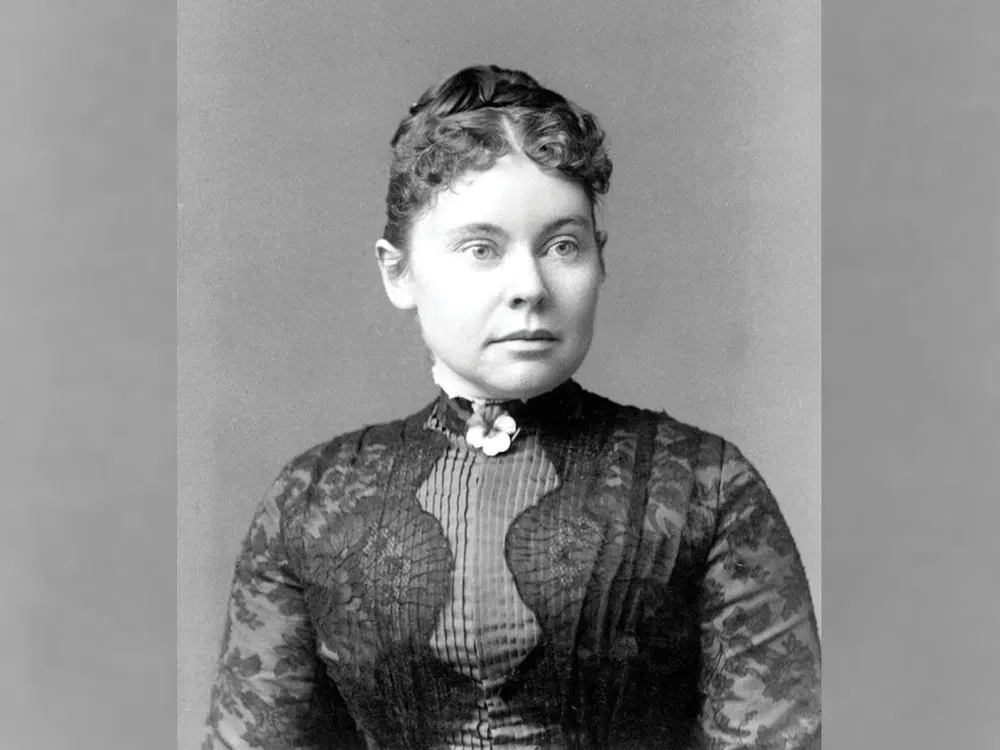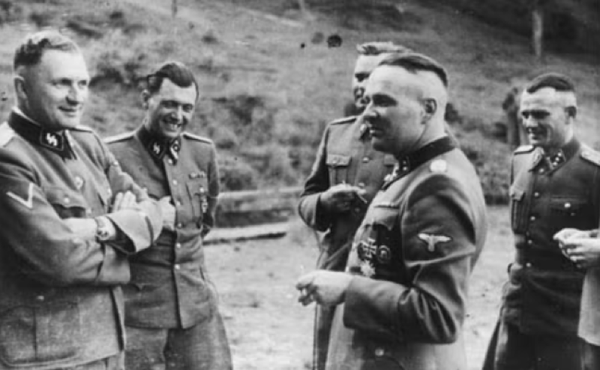How Lizzie Borden managed to get away with murder

From the Smithsonian: "The Lizzie Borden murder case is one of the most famous in American criminal history. New England’s major crime of the Gilded Age, its barbarity captivated the national press. And the suspected killer was immortalized by an eerie rhyme: Lizzie Borden took an ax and gave her mother forty whacks. When she saw what she had done, She gave her father forty-one. The rhyme is not quite correct: the female victim was Borden’s stepmother, and the weapon wasn’t an ax, but rather a hatchet. Also, the killer struck the victims around half as many times as stated in the rhyme—19 blows rained down on 64-year-old Abby Borden, and 10 or 11 rendered the face of Lizzie Borden’s 69-year-old father, Andrew Borden, unrecognizable." Fall River was rocked not only by the sheer brutality of the crime but also by the identity of its victims."
Before Harry Potter’s sorting hat there was the Medieval Space Bonnet

From Atlas Obscura: "On a grey and drizzly afternoon in the University of Edinburgh’s opulent graduation hall, J.K. Rowling waited to receive an honorary degree. But before the degree could be conferred, she had to take part in a long-standing tradition. University Principal Timothy O’Shea merrily explained that she, along with all graduating students, must step forward and be tapped on the head with an object he calls “the medieval space bonnet.” The University of Edinburgh’s Sorting Hat-style graduation ceremony has been in place for at least 150 years, in which time the bonnet has tapped the heads of over 100,000 graduates. But the round silk and cloth bonnet is rumored to be much older than that. Legend has it that the bonnet was made from a pair of trousers that belonged to 16th-century Scottish Reformation leader John Knox."
The famous Christmas song Jingle Bells started as a drinking song written by a jerk

From the CBC: "Here's the truth about Jingle Bells. It's not a Christmas song — it's a Thanksgiving song. It's not a jolly family song — it's a drinking song. It's at the centre of a nasty dispute, and it was written by a jerk. The real story of Jingle Bells starts on the banks of the Mystic River in New England, just upstream from Boston, in Medford, Mass. If you walk along High Street, and stop at Rosetti Optical, you'll find a plaque, which reads Jingle Bells composed here. On this site stood the Simpson Tavern, where in 1850, James Pierpont wrote the song Jingle Bells. One of the great industries of Medford was rum-making, and if you really think about the lyrics of the song, with the lens that these are drag races that are happening at top speed down the centre of this street, one of the suggestions is that it's actually a drinking song. This is a song you sing while you're drunk, talking about an event that happened while they were drunk."
Editor's note: If you like this newsletter, please share it with someone else. And if you really like it, perhaps you could subscribe, or contribute something via my Patreon. Thanks for being a reader!
Just one more round: The disturbing last drink of Wild West thief John Shaw

From Hushed Up History: "On April 8th 1905 the Wigwam Saloon in Winslow, Arizona was still hopping and the liquor was flowing. Drinks may have been what was on the minds of John Shaw and William Evans when they first entered the building, but they soon shifted their attention. Their drinks were sitting untouched on the bar when the two walked over to a nearby dice table where the glitter of silver dollars caught their eyes. They pulled their guns on the players and gave them a dire warning to cooperate. After robbing the players of over $200 they ran off into the night. Twenty-one total shots were fired but at one point Shaw turned away from his opponent and that is when Sheriff Houck put the fatal bullet in his head. Word of the encounter traveled fast and the story was heard by members of an Arizona cattle outfit. Going head-to-head with law enforcement was nothing new to the men, but what was truly shocking to them was that Shaw died without ever getting to enjoy the drink he ordered at the bar."
The quest to type Chinese on a QWERTY keyboard created autocomplete

From MIT Tech Review: "Debuted in 1959 by MIT professor Samuel Hawks Caldwell and the Graphic Arts Research Foundation, this machine featured a QWERTY keyboard, which the operator used to input—not the phonetic values of Chinese characters—but the brushstrokes out of which Chinese characters are composed. The objective of Sinotype was not to “build up” Chinese characters on the page, though, the way a user builds up English words through the successive addition of letters. Instead, each stroke “spelling” served as an electronic address that Sinotype’s logical circuit used to retrieve a Chinese character from memory. Caldwell called his discovery “minimum spelling,” making it a core part of the first Chinese computer ever built. Today, we know this technique by a different name: “autocompletion.” Decades before its rediscovery in the Anglophone world, then, autocompletion was first invented in the arena of Chinese computing."
The real story behind where the expression "okay" came from

From Mental Floss: "OK" is the all-purpose American expression that became an all-purpose English expression that became an all-purpose expression in dozens of other languages. It can be an enthusiastic cheer (A parking spot! OK!), an unenthusiastic "meh" (How was the movie? It was…OK.), or a way to draw attention to a topic shift (OK. Here's the next thing we need to do). There may be more stories about the origin of "OK" than there are uses for it: it comes from the Haitian port "Aux Cayes," from Louisiana French au quai, from a Puerto Rican rum labeled "Aux Quais," from German alles korrekt, from Scots och aye, from Latin omnes korrecta. The truth about OK, as Allan Metcalf, the author of OK: The Improbable Story of America's Greatest Word, puts it, is that it was "born as a lame joke perpetrated by a newspaper editor in 1839."
A mechanical device to play birdsongs, invented 120 years ago
Built 120 years ago in Paris by Blaise Bontems, you'll need your volume on to appreciate this mechanical birdsong device.
— Daniel🎗🏴 ॐ (@DannyDutch) May 25, 2024
Utterly gorgeous.pic.twitter.com/PPRvoItj81
Acknowledgements: I find a lot of these links myself, but I also get some from other newsletters that I rely on as "serendipity engines," such as The Morning News from Rosecrans Baldwin and Andrew Womack, Jodi Ettenberg's Curious About Everything, Dan Lewis's Now I Know, Robert Cottrell and Caroline Crampton's The Browser, Clive Thompson's Linkfest, Noah Brier and Colin Nagy's Why Is This Interesting, Maria Popova's The Marginalian, Sheehan Quirke AKA The Cultural Tutor, the Smithsonian magazine, and JSTOR Daily. If you come across something interesting that you think should be included here, please feel free to email me at mathew @ mathewingram dot com

